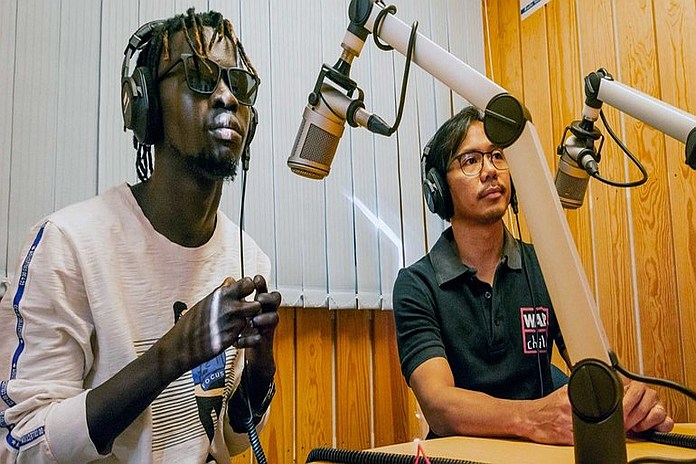NEW YORK, USA – UN peacekeeping radio stations have in recent decades helped build support for peace process in a dozen countries around the world including Cambodia, Croatia, Namibia, and Timor-Leste. Today, these stations are playing another vital role – getting the word out to vulnerable communities in conflict-affected states about the coronavirus pandemic and how people can protect themselves and others from getting the disease.
UN peacekeeping currently has large, popular and trusted radio stations in four African countries: The Democratic Republic of the Congo and the Central African Republic, which have already recorded cases of COVID-19; and Mali and South Sudan which have not. The stations’ ability to reach both big urban centers and isolated communities in countries that lack basic communications infrastructure, can play an important role in addressing the disease.
Providing accurate and timely information to the public and media about the UN’s role in COVID-19 prevention and preparedness and the impact on UN personnel and activities in the country is an operational necessity and fundamental to fighting the disease.
Radio Miraya, the station of the UN Mission in South Sudan (UNMISS), has for weeks been dedicating time and resources to provide the population on the pandemic. Based in the capital Juba, Miraya has the largest reach of any broadcaster in South Sudan and due to an effective relay system can be heard throughout most of the country.
“For the great majority of people across South Sudan there is no internet, television or newspapers available. So how do people get their news? Some by word of mouth, but mostly from Radio Miraya,” said David Shearer, the special representative of the UN secretary-general for South Sudan and head of UNMISS.
He added: “We know from a public opinion survey that Radio Miraya is available across over two-thirds of this vast country and that 80 percent of those it reaches listen to it every day. That makes Radio Miraya a communication lifeline for communities in times of crisis.”
Radio Miraya reports the latest news about the global epidemic and the impact it may have on South Sudan. It also runs public service announcements (PSAs), including recently written songs by popular artists on the best practices to prevent any eventual outbreak for starting or spreading, such as handwashing and social distancing.
Right now, with the onset of the coronavirus, Miraya is playing an especially critical role. Its staff is working long hours to broadcast public health messages from the World Health Organisation (WHO) on how people can keep themselves safe. It constantly updates on the government’s plans and preparations for the virus as well as providing more in-depth coverage of how the virus is impacting communities. It also reports on the situation in other countries linking South Sudanese to the news across the world so they can understand its impact globally.
“It’s not just dull health warnings. We’re also taking an innovative approach playing songs and jingles by South Sudanese musicians and offering light-hearted tips about how to have fun and relax while staying safe. That improves the chance to reach all audiences, including young people. We will try pretty much anything to get the message across if it will help the people we are here to serve,” Shearer said.
In South Sudan and the other countries hosting peacekeeping operations, the UN radio stations have echoed the secretary-general’s recent call for a global ceasefire so the world can concentrate its efforts on the response to the COVID-19 pandemic.
Peacekeeping radio stations cooperate with public and private broadcasters in the countries where they operate. They often provide their national counterparts with content, public service announcements, and training. Never has this cooperation been more crucial than today.
But radio is not the only communications tool available to UN Peacekeeping, and the missions’ social media platforms are also being put to good use. Providing the public with simple messages and important facts on the disease can be quickly and effectively done via Twitter, Facebook or other social media that may be popular in the country.
A better-informed public is key to helping fight the pandemic. And peacekeeping radio is playing its part.





